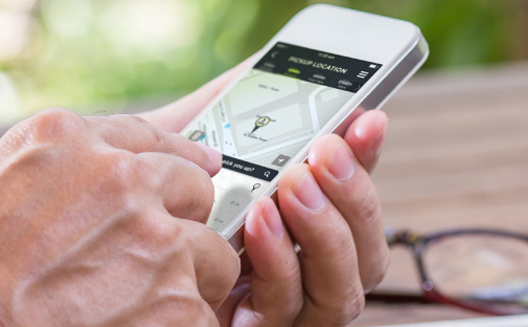Car-hailing app Careem raises $60M Series C

[Editor's note: This article has been updated to include details about Careem's peak pricing change.]
Middle East-founded car-hailing app Careem has raised $60 million in Series C funding, led by The Abraaj Group.
Careem plans to use the funds to invest in its core MENA markets as well as Pakistan, and the announcement comes just days after foreign rival Uber said it plans to spend $250 million to continue its own rapid growth in the region.
The startup is going head-to-head with Uber in key markets such as Egypt, which the latter says has become its fastest growing city in Europe, the Middle East and Africa only a year after launching.

Careem said in a statement that for the last three years it had seen strong growth month-on-month of over 30 percent in core markets of the UAE, Saudi Arabia and Egypt.
“This new investment will further strengthen Careem’s leadership position in the region. Careem plans to continue growing by partnering with regulators and governments to create jobs, improve livelihoods and empower women," it said.
The Abraaj Group partner Mustafa Abdel-Wadood told Wamda that the latest investment in Careem, one of the largest in the region’s emerging tech sector, and that of its rival “speaks to the size of the opportunity” in MENA.
This round is The Abraaj Group’s first investment in Careem, and it now stands alongside other investors Arzan Venture Capital, Al Tayyar, STC Ventures, BECO Capital, Impulse (a subsidiary of Kuwait Investment Authority), Lumia Capital and Wamda Capital. Al Tayyar remains the largest institutional investor.
“Careem is a very fast growth business, given how underserved those regions are, and this funding round is to support their expansion,” Abdel-Wadood said.
He said Abraaj was impressed by Careem’s “adaptive” business model, which remained faithful to its core service of transport services, and the team which recognized the “fluidity” of the market yet could also react to it by providing market-specific services.

The car-hailing service has shown a willingness to provide market-specific services such as Careem Kids in the UAE where families can order cars fitted with car seats and toys, and to buy other businesses apparently tangential to its own core service, such as Saudi home-delivery service Enwani in January.
"Careem is an exceptional example of regional innovation, the team has managed to compete head on with global players and come out on top. They were able to execute extremely effectively and it shows in their growth number which are at present unmatched," said Khaled Talhouni, partner at Wamda Capital.
Abdel Wadood said Abraaj recognised the disruption technology was playing within the transport sector in the Middle East and Careem was a more obvious investment choice than similar startups in, and outside of, the region due to its very strong growth profile and understanding of the needs of each of the 10 markets it operates in.
Careem was founded in Dubai in 2012 by Magnus Olsson and Mudassir Sheikha, both former consultants at McKinsey & Company, and Dr Abdulla Elyas, and operates in 20 cities in MENA and Pakistan.
Surge pricing
Careem has also announced that it will introduce surge pricing during peak periods.
It said in a statement that it was ensure reliability of car supply, which had been hit when Uber introduced surge pricing last summer and Careem's drivers would switch to the competition to capitlalise on the higher rates.
"The introduction of surge by competition last year challenged our reliability promise during peak times," Careem said.
The company began paying drivers a bonus during peak periods in order to keep them and continued to do so all year, but the costs began to rise too high as they expanded.
"A 20 Dh trip would sometimes cost us 50 Dh or more in peak times," they said. "As our scale increased and competition surge went to higher multiples, reliability became a challenge despite the bonuses, and losses started mounting. Most recently, we spent AED 350k per week in captain bonuses in Dubai alone, and even that was not enough to ensure reliability."
A peak pricing "experiment" began on November 17.


